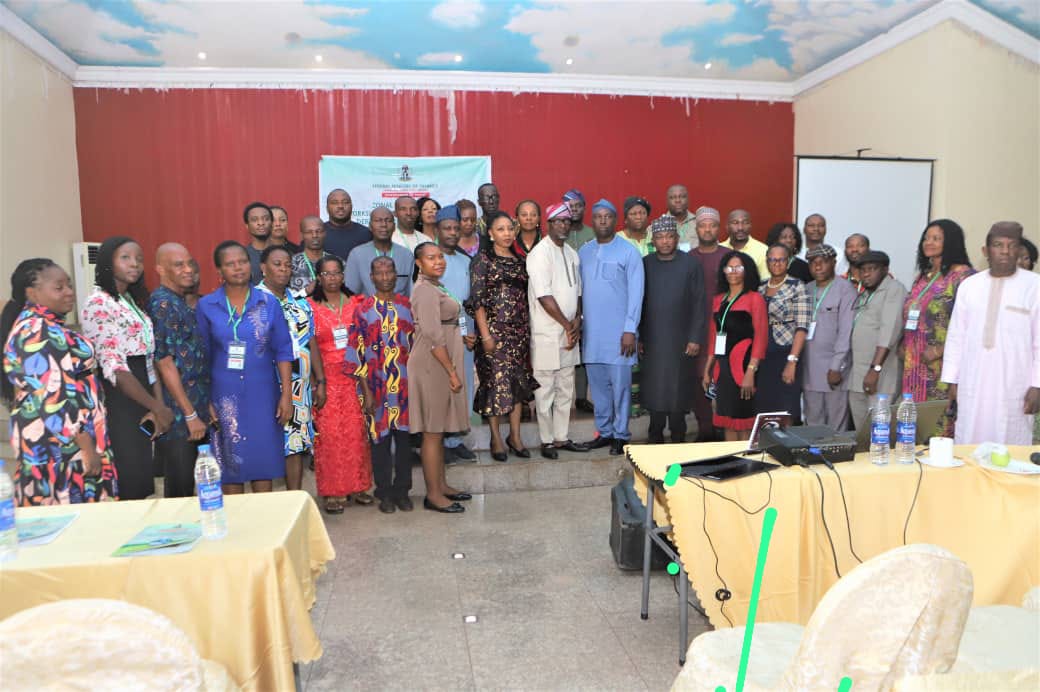Business
Ministry of Finance Launches Digital Platform For Enhanced Overnight of Duty Exemptions Organizes Stakeholders’ Workshop

In a significant advancement to streamline fiscal management, the Honourable Minister of Finance and the Coordinating Minister of the Economy, Mr Wale Edun has announced the integration of the Incentive Monitoring and Evaluation Platform (IMEP) into the Import Duty Exemption Certificate (IDEC) programme, thereby allowing for enhanced monitoring and evaluation.
The IDEC programme strategically reduces import duty burdens for priority sectors such as manufacturing, agriculture, and healthcare, stimulating economic growth and national development.
Integrated into the IDEC framework, the newly launched IMEP ensures that only eligible entities benefit, rigorously enforcing compliance and optimising tax expenditures to reduce waste, block leakages and enhance economic equity.
Key features of the IMEP include an automated claw-back mechanism for recouping waivers from defaulters, real-time e-report generation and a centralised database that enhances the efficiency of our verification processes.
IMEP aims to ensure that tax incentives are rationalised to deliver maximum economic impact, aligning with the government’s commitment to reducing waste, blocking leakages, and fostering a robust and equitable economic environment. IMEP’s precise monitoring capabilities will significantly enhance the strategic allocation of exemptions and support the government’s objective to ultimately reduce tax expenditures.
To acquaint all stakeholders with the upgraded IDEC framework, the Ministry of Finance will host a webinar on April 25th, 2024, by 12 noon (WAT). Key industry participants, including manufacturers, importers, and representatives from MDAs and NGOs, are invited to engage in this session to understand the enhanced features and benefits of the IMEP.
AaaaaaaaaaaaaaaaaaaaaaaaaaaaaaaaaaaaaaaaaaaDetails for the webinar will be available on the Ministry of Finance’s official website and the IDEC YouTube channel.
Business
TAJBank Emerges Nigeria’s Biggest Non-Interest Bank

Cyril Ogar
After five years of operations in Nigeria’s rapidly evolving non-interest banking (NIB) space, TAJBank Limited has become the biggest player in the NIB subsector based on its total assets and gross earnings values.
Disclosing this during his paper presentation on the key performance indices in the non-interest banking space over the past few years at a seminar organized by Leaders Corporate Services with the theme “Roles of Non-Interest Banks In SMEs’ Financing” for SME entrepreneurs yesterday in Abuja, an investment expert, Mr. Olabode Akeredolu-Ale, maintained that based on the non-interest banks’ approved financial statements for the half year 2025, TAJBank currently remained the biggest in terms of its total assets.
The expert, a chartered stockbroker, specifically confirmed that his recent investment researches on the NIBs and their financial performances showed that TAJBank, with its total assets rising to N1.017 trillion in half year 2025 up from N953.098 billion as of December 2024, which is about N53 billion higher than the nearest NIB’s assets, now ranked top in the banking subsector.
According to him, TAJBank’s gross earnings for H1 2025 also surged to N53.752 billion from N32.86 billion as of December 2024, representing a 64% growth, and higher than the nearest NIB’s gross earnings in the period under review.
This is even as he disclosed that on the NIBs’ earnings per share during the half year, TAJBank reported N61.36 kobo earnings per share, about 92% higher than the earnings per share of the next NIB during the period.
Akeredolu-Ale, who is also a chartered accountant, clarified: “The figures I am reeling out here on the NIBs are sourced from the banking and capital market regulatory institutions’ platforms, which anyone can access to verify.
“I am part of this event because of my research interest in non-interest banking and how the players in the subsector in Nigeria can help to leverage their competencies in innovation and ethical banking to support our MSMEs.
“Today, the MSMEs cannot access DMBs’ loans due to high lending rates and other inclement macroeconomic factors. This is where I think the NIBs have become very crucial to Nigeria’s economic growth.
“Overall, my findings on the NIBs indicated that they are all trying their best with non-interest loans to support entrepreneurs, particularly the MSMEs owners. I have advised those of them at this seminar to explore the cost-friendly financing options of the NIBs to grow their businesses by opening accounts with the NIBs”, the expert added.
Another speaker at the event, Benjamin Chukwudi, also commended the NIBs for their “catalytic roles in helping SMEs to access interest-free loans and providing them the needed financial management advisory, which have been helping them in sustaining their operations in the face of rising cost of doing business in the country.”
-

 Featured6 years ago
Featured6 years agoLampard Names New Chelsea Manager
-

 Featured6 years ago
Featured6 years agoFG To Extends Lockdown In FCT, Lagos Ogun states For 7days
-

 Featured6 years ago
Featured6 years agoChildren Custody: Court Adjourns Mike Ezuruonye, Wife’s Case To April 7
-

 Featured6 years ago
Featured6 years agoNYSC Dismisses Report Of DG’s Plan To Islamize Benue Orientation Camp
-

 Featured4 years ago
Featured4 years agoTransfer Saga: How Mikel Obi Refused to compensate me After I Linked Him Worth $4m Deal In Kuwait SC – Okafor
-
Sports3 years ago
TINUBU LAMBAST DELE MOMODU
-

 News10 months ago
News10 months agoZulu to Super Eagles B team, President Tinubu is happy with you
-
Featured6 years ago
Board urges FG to establish one-stop rehabilitation centres in 6 geopolitical zones
